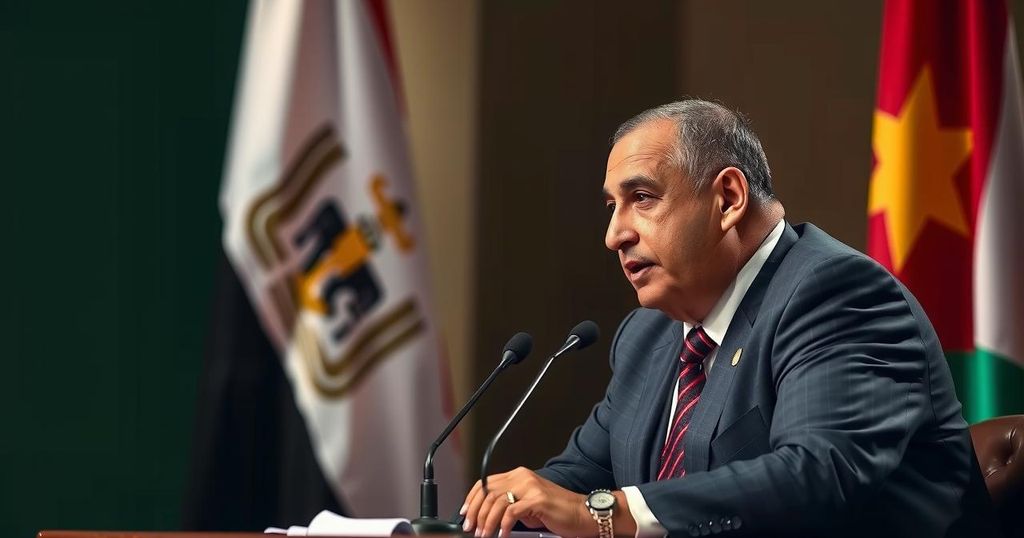Egypt’s Foreign Minister Badr Abdel-Ati highlighted the nation’s dedication to resolving the conflict in Sudan, citing that Sudan’s security is integral to Egypt’s own. Egypt opposes foreign interference, advocating for a Sudanese-led political solution. The ongoing war has caused significant humanitarian crises, prompting calls for civilian protection amidst international scrutiny.
Egyptian Foreign Minister Badr Abdel-Ati emphasized the country’s commitment to ending the ongoing conflict in Sudan, highlighting the interconnectedness of national security between Sudan and Egypt. During his recent visit to Sudan, he reiterated Egypt’s determination to support the Sudanese people in achieving a political resolution and restoring stability. “Sudan’s security is Egypt’s security,” he affirmed, vowing to reject any foreign interference and to rely solely on Sudanese-led solutions.
The Egyptian leader also noted that the support being extended includes facilitating political engagement aimed at constructing a civil state governed by robust institutions and an empowered military. President Abdel Fattah el-Sisi previously expressed continued support for the Sudanese military during a meeting with army chief Abdel Fattah al-Burhan, urging the necessity for a ceasefire.
As the conflict between Sudan’s military and the Rapid Support Forces (RSF) has resulted in untold suffering—with tens of thousands dead and millions displaced—international calls for safeguarding civilians have intensified. Notably, the UN experts have pointed out possible war crimes and crimes against humanity committed by both sides and have recommended the deployment of an independent force for civilian protection. The Sudanese government, however, rejected these calls, emphasizing their autonomy in controlling the situation.
Given the complex dynamics of this crisis, Egypt remains vigilant in its efforts to facilitate dialogue and support its neighbor in overcoming this humanitarian disaster, fully acknowledging the importance of Sudan’s sovereignty in the matter.
As the international community watches closely, the emphasis remains on an inclusive resolution that prioritizes the voices and decisions of the Sudanese people, supported, though, by regional allies like Egypt. The ongoing Turkish role highlights the profound regional implications of Sudan’s conflict and the shared burden carried throughout the geopolitical landscape.
The conflict in Sudan has escalated into a severe humanitarian crisis since hostilities broke out between the Sudanese Armed Forces and the paramilitary Rapid Support Forces in April of the previous year. The war has led to significant casualties, displacing millions, aggravating food insecurity, and prompting international concerns about potential war crimes. As regional powers, particularly Egypt, are directly asserting their influence in Sudan, it underscores the critical nature of emergent diplomatic efforts to stabilize the region and restore order.
In conclusion, Egypt’s proactive role in seeking to halt the conflict in Sudan illustrates the importance of regional security dynamics. With strong declarations from both the Egyptian Foreign Minister and President, the country underlines its commitment to supporting Sudan in achieving peace and stability. As foreign intervention discussions arise, Egypt insists on a Sudanese-led resolution, reflecting an understanding of both the humanitarian crisis at hand and the political complexities involved in restoring governance in Sudan.
Original Source: english.almayadeen.net






